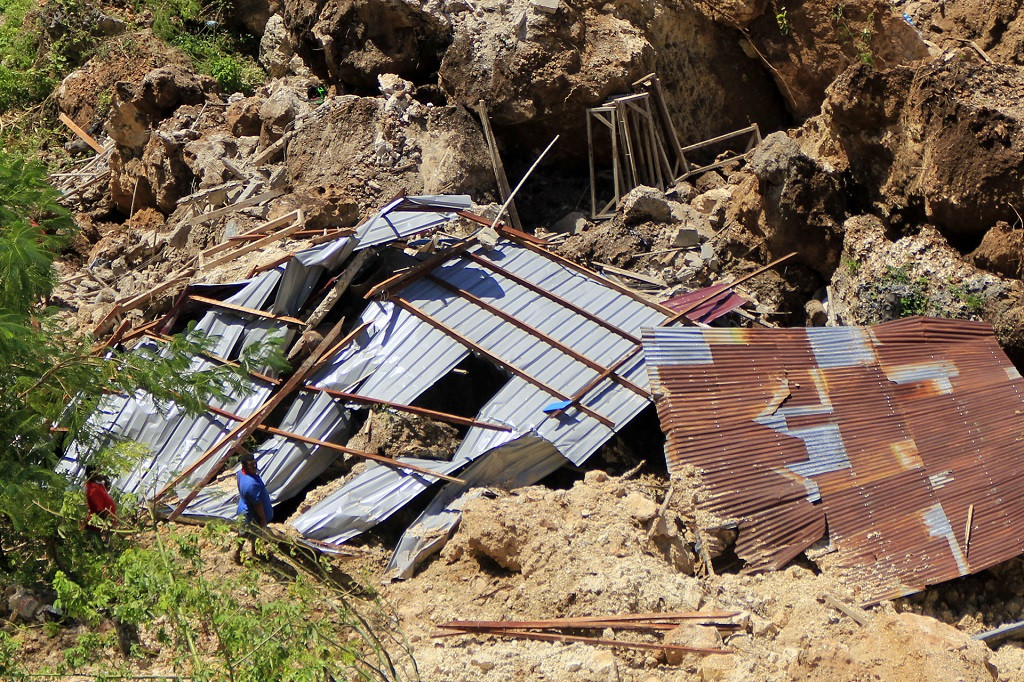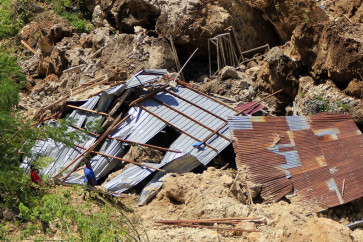Popular Reads
Top Results
Can't find what you're looking for?
View all search resultsPopular Reads
Top Results
Can't find what you're looking for?
View all search resultsOur toilet and sanitation system needs to be climate resilient
The impacts of climate change on the water, sanitation and health sector are rarely addressed within Indonesia’s policies.
Change text size
Gift Premium Articles
to Anyone
 Residents look for their belongings in the ruins of their house, which was destroyed by a landslide in Oebufu subdistrict, Oebobo district, Kupang, East Nusa Tenggara on April 17, 2021. Hundreds of people were killed after flash floods and landslides triggered by the Seroja tropical cyclone swept through East Nusa Tenggara on April 5 of that year. (Antara/Kornalis Kaha)
Residents look for their belongings in the ruins of their house, which was destroyed by a landslide in Oebufu subdistrict, Oebobo district, Kupang, East Nusa Tenggara on April 17, 2021. Hundreds of people were killed after flash floods and landslides triggered by the Seroja tropical cyclone swept through East Nusa Tenggara on April 5 of that year. (Antara/Kornalis Kaha)
Y
esterday was the last day of the United Nations climate change conference (COP 27), and today we commemorate World Toilet Day. What a great day to focus our attention on the climate impact that our toilet and sanitation system has.
There is ample evidence of the importance of integrating climate change adaptation in the water, sanitation and hygiene (WASH) sector and opportunities to be more adaptive with the community-based total sanitation (STBM) program initiated by the Health Ministry to mobilize community action to reduce open defecation and increase other sanitary practices.
However, none of the progress and health outcomes intended from this community-based program will be sustainable if climate change adaptation is ignored.
Reflecting on the Seroja Cyclone, a climate disaster that struck my province, East Nusa Tenggara (NTT), in 2021, I wonder what could have been done differently. In addition to the fatalities, ruined houses and damaged infrastructure, the impacts of the tropical cyclone included destruction of the water and sanitation system.
In the areas hit hardest by the disaster, water supplies and sanitation infrastructure were ruined. When toilets are damaged, unprotected wells and water sources are contaminated, causing waterborne diseases such as dysentery, giardia, typhoid, etc.
The cyclone is a wake-up call about how real climate change has impacted NTT, a province famous for its prolonged drought but suddenly inundated with water everywhere. Thus, we can't ignore climate change’s impacts on the water and sanitation sector.
As Indonesia is ranked in the top three in terms of climate risk (The World Bank Group and Asian Development Bank, 2021), climate adaptation should be integrated into all government programming, including STBM.


















